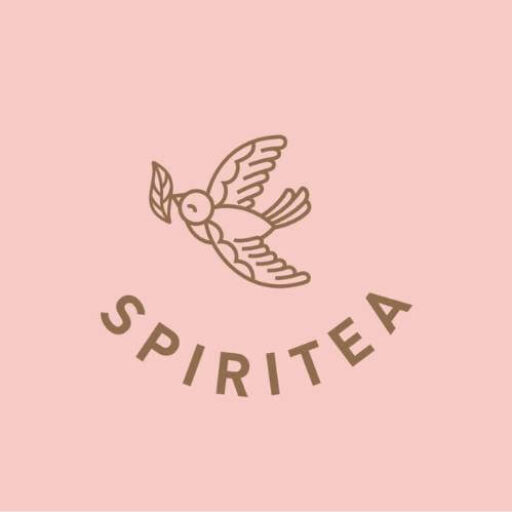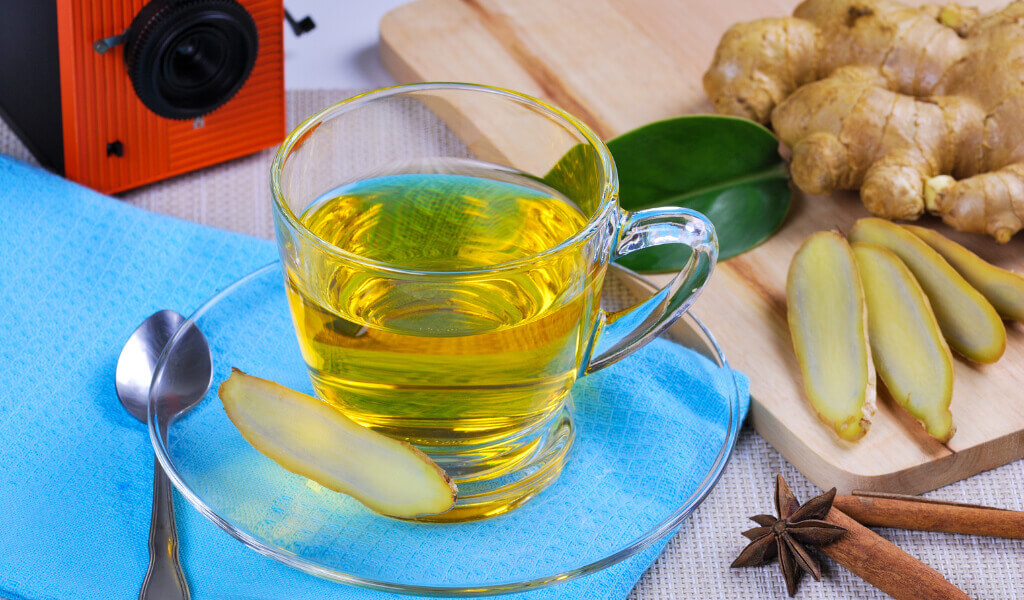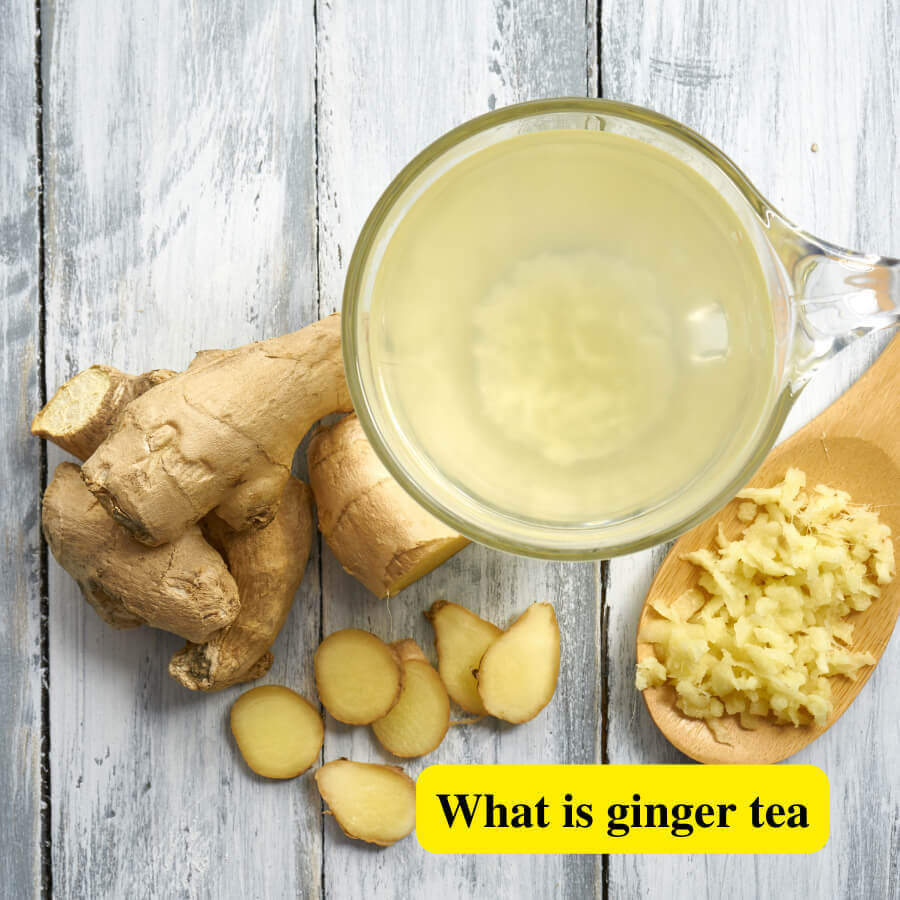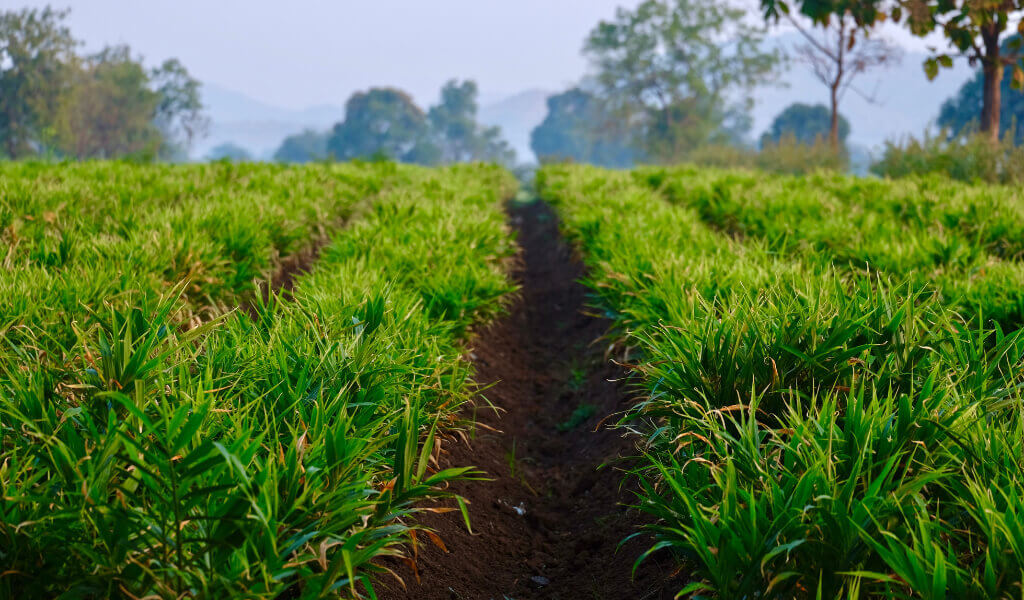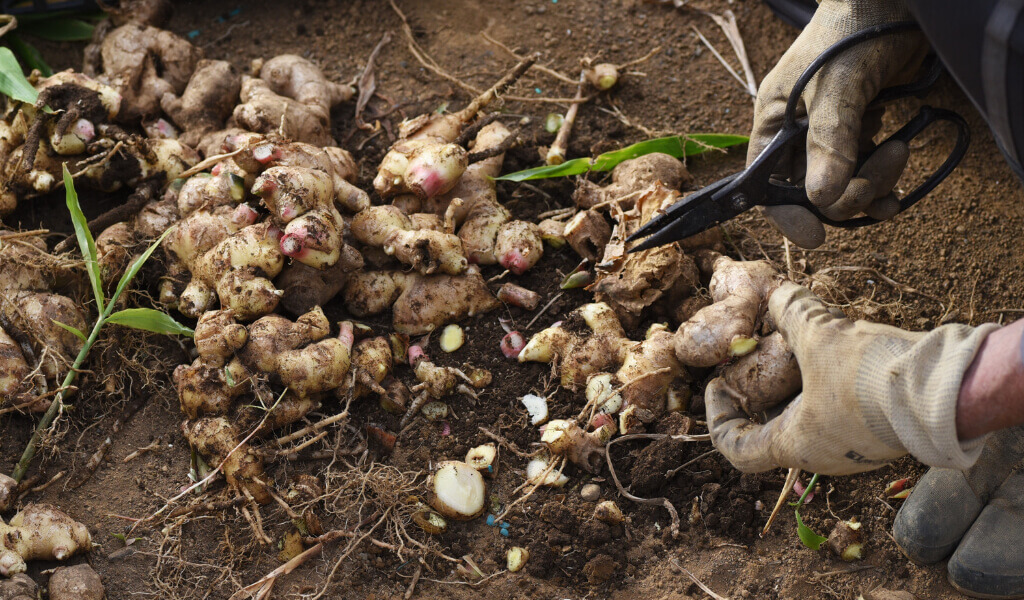Wondering “what is Ginger tea?” then you’re in the right place! In this article, I’ll share everything you need about Ginger tea, including its origins, health benefits, and how to prepare it at home.
So please grab a cup of your favorite tea, sit back, and explore the wonderful world of Ginger tea together!
Quotes of tea at Today
“Home is where the tea is.” – Js Devivre, The Tea Traveller’s Constant Companion: Oregon.
What is ginger tea?
Ginger tea is a beverage prepared by infusing a small amount of tea leaves and a few slices of peeled ginger in hot water. It is brewed from ginger root and has a rich cultural and medicinal heritage across East, South, Southeast, and West Asia.
Get ready to spice up your life with ginger – a fiery flavor sensation that originates from the root-like stem, known as rhizome, of the Zingiber officinale plant. And that’s not all – this plant family is home to other mouth-watering members like turmeric, cardamom, and galangal.
@easternphilosophy A popular tonic in China: traditional ginger-jujube-goji tea! 🌿 #chinesemedicine #ginger #naturalremedy #antiaging #wellness #pregnancy #plantbased
People like eating ginger as a pleasant treat or using it as a fragrant spice in a variety of savory and sweet meals.
Ginger tea has a flavor that is spicy, a little sweet, and refreshing. However, ginger tea’s numerous digestive health advantages are what set it apart. Anti-inflammatory and antioxidant characteristics found in ginger can aid with digestion, ease motion sickness, and strengthen the immune system.
It is a great natural cure for headaches and tired muscles since it also lessens pain and inflammation. Ginger tea is the ideal choice if you’re seeking a warm beverage on a chilly day or a chilled beverage to cool off in the summer.
Tea Ginger: Changes from place to place
-
- Taiwan: Often add a lot of brown sugar
- From South Asia to Singapore and Malaysia: often brewed with black tea, condensed milk, and sugar
- Korea: Honey is often added, and sometimes dates or pine nuts are added
- Indonesia: Lemongrass, cinnamon, cloves, pandan leaves, and palm sugar are often added
- Germany: Often add lemon, mint, and honey
- Chinese ginger tea
What does Ginger Tea do for you?
It aids digestion, is good for colds, sore throats, and upset stomachs, increases circulation, & helps to get rid of excess phlegm.
Where Ginger Leaf Tea Grows
Ginger grows well in damp environments and resembles bamboo in appearance. It produces clusters of white and pink flower buds that open into lovely yellow blooms. In warm climates, ginger is frequently used in landscaping because of its attractive appearance and propensity to flourish there.
Originally cultivated in South Asia, ginger’s cultivation has since spread to East Africa and the Caribbean. The largest producers of ginger today are China and India. However, other tropical countries like Brazil and Jamaica are also well-known for growing and exporting the plant.
Here’s a fun fact: India’s Malabar Coast produces half of the world’s ginger, and most ginger shipped to the U.S. comes from Hawaii.
Read More:
- What is Tulsi Tea? Grows, History, Used & Storing
- What is Neem Tea: Origin, Use, Flavor and How to make
- What is Lemongrass Tea? 🌱Origin, Nutrition and how to drink
- What is Chai tea? Interesting things you haven’t heard
- What is Hibiscus Tea? Discover the drink that captivated millions
- What is Rosemary Tea? Ultimate Benefits, Health Nutritional Value & Side Effects
- What is Chamomile Tea? Everything You need to know
How It’s Picked
Traditionally, ginger is harvested once the plant’s stalk begins to wilt. The root is quickly cleaned and scraped to stop it from sprouting and preserve its freshness.
When shopping for fresh ginger at the grocery store, look for robust, firm roots with a spicy aroma and smooth skin. Avoid selecting cracked, withered, or wrinkled seeds, as they are old and not as flavorful.
Keep your ginger fresh and tasty by wrapping it up tight in a paper towel, plastic wrap, or a plastic bag and popping it in the fridge after you bring it home! It will help keep it fresh for 2 to 3 weeks.
How It’s Used
I find it fascinating that ginger has a long and storied history of medicinal and culinary use.
For thousands of years, Ayurvedic practitioners in Hindu culture have relied on ginger as a healing herb.
Ayurveda employs a comprehensive method of healing that incorporates yogic breathing, herbal remedies, and food. For conditions including nausea, rheumatism, and arthritis, ginger is frequently advised.
Did you know ginger has been used in European cuisine since around 800 AD? It was the second most popular spices after pepper for centuries! Ginger is all the rage these days! Its sweet and spicy scent makes it a jack-of-all-trades ingredient, perfect for adding zing to your sweet and savory treats.
- If you use young ginger roots, you’ll notice they are juicy, fleshy, and taste mild. They are often pickled in vinegar or sherry for a tasty snack or used in many culinary dishes as an aromatic ingredient. You can even steep them in boiling water to make a delicious ginger tea culture, which is excellent with a touch of honey to balance the spicy heat.
- On the other hand, mature ginger roots are fibrous and nearly dry. The juice from older sources is very potent. It is often used in Indian cooking, as well as in Chinese, Korean, Japanese, and many Southern Asian cuisines.
- You can use dried and powdered ginger if you want a spicier and more intense ginger flavor. It is perfect for making gingerbread, cookies, cakes, ginger ale, and ginger beer.
- Lastly, candied or crystallized ginger is made by cooking the root in sugar until it becomes soft and chewy. It’s often eaten like candy and is popular in baking applications.
What are the ingredients in ginger tea?
The main components of 0.25-3% volatile oil are gingerol (Zingiberot), zingiberene (Zingiberene), phellandrene, etc. It also contains spicy gingerol (Gingerol) and amino acids, resins, starch, etc.
Drink ginger tea to warm the stomach and drive away the cold
As people say, “Ginger cures all diseases,” I think it’s because ginger is rich in oily volatile oils like gingerol, zingiberene, phellandrene, citral, and more.
It also has gingerol, resin, starch, and fiber, which help relieve bloating, stomach discomfort, anorexia, and weariness.
Making ginger tea blends is one of my favorite uses for ginger. It tastes fantastic but also warms my stomach and keeps the cold at bay.
Drinking ginger tea can even help prevent colds and boost my immune system. If you’re interested in trying ginger tea, here are some recommendations that I suggest.
Can we drink ginger tea while pregnant?
The anti-nausea and anti-vomiting properties of ginger have been proven. As a result, ginger tea may aid in the relief of morning sickness during pregnancy.
Drinking up to 4 cups (950 ml) of ginger tea daily while pregnant is generally considered safe.
What is the best lemon ginger tea for detox?
Most people have a liver and kidneys to handle detoxification. If you accumulate toxins in your body, you die, and no drink will help. Don’t fall for the detox fad, it’s a total scam! These so-called “miracle cures” like detox drinks and colonics are just preying on people with health anxiety or poor lifestyle choices.
That said, lemon ginger tea has health benefits. First, it is tasty. Drinking something that tastes good makes one happy, and being optimistic benefits your overall health.
There are also nutritional benefits (please note, this assumes natural ginger, real lemon extract, and possibly actual tea, with no added sugar).
Both tea and ginger are loaded with phytonutrients, including antioxidants (which repair cells) and anti-inflammatories (which reduce swelling and pain). Ginger also helps relieve nausea and indigestion, while lemon reduces insulin resistance and adds additional antioxidants (mainly vitamin C).
Other benefits include reducing the risk of certain cancers, neurological diseases, and liver repair.
While some choose a lemon ginger herbal tea (no actual tea), I prefer lemon ginger green tea (it’s the only way I like green tea). For the best option, check the label. Choose lemon, ginger, botanicals, and maybe tea. Some add black pepper for antioxidants and taste, or citric acid for flavor (not health benefits).
I like Vahdam and Twinings, but there are several others. You can also find recipes online.
What happens if I drink 2 gallons of fresh organic ginger tea in 12 hours?
If you drink it all at once, you risk causing water intoxication.
If you space it out, you will produce quite a bit of expensive urine. The anti-nausea effects of ginger may prevent you from feeling sick, but this depends on your body.
In conclusion
Ginger tea has been a popular and healthy drink for centuries to promote overall health and wellness.
It’s a natural anti-inflammatory, and its digestive properties make it an effective remedy for various health concerns. It can be easily prepared at home using fresh ginger and boiling water.
Whether you want to manage inflammation, soothe digestive issues, or enjoy a delicious and healthy drink, ginger tea is worth trying. Why not try ginger tea and see how it might improve your health now that you know what it is and its possible advantages? Remember to share this post on social media if you find it useful so that others can benefit from learning about ginger tea.
See more articles at: spiriteadrinks.com
I’m Shanna, creator of Spiritea Drinks. I’m all about teaching people to grow their own food, tea, cook what they harvest, and eat with the seasons.
